Shantou beef ball
Beef balls, also known as hand pounding beef balls, are one of the famous traditional snacks in Shantou City, Guangdong Province, which originated from Chaozhou cuisine. Beef balls, as the most famous and popular traditional snack in Shantou and Chaoshan area of Guangdong Province, can serve as snacks as well as a feast soup.
The beef balls are meticulous, bright and ruddy, soft and crisp and elastic, delicious and fragrant, and tender and smooth.
Shantou beef seven beef ball has a history of nearly one hundred years. Generally, beef balls can be divided into beef balls and beef tendon balls. Beef balls are made of pure fresh meat. The meat is tender and crisp. Beef tendon balls add tender tendons to beef to make it taste more fragrant, more elastic, crisp and tender, with soup in the balls and splashing delicious juice in the mouth. In the early 1990s, Hong Kong Wulitou Master Zhou Xingchi introduced beef balls into his film and television creation. As soon as "God of Eat" was broadcast, Setsui beef balls became popular in the north and south of the Yangtze River. Many tourists admired it and went to have a try. But many people did not know that the prototype of Setsui beef balls was Shantou Niuqi beef balls (Niujinwan pills). In Hong Kong, the city of delicacies, it also greatly promoted the spread of beef balls, which made Chaoshan Niuqi beef balls popular at home and abroad. Nowadays, although beef balls are imitated in many places, the local products of Chaoshan are still authentic in the food industry. In 2003, Shantou beef seven beef balls were named "Chinese snacks".
Matters needing attention
1. Boil the beef balls in the pot until they are first boiled (water should not be too boiling when boiling, otherwise the beef balls will not be smooth).
2, add proper amount of MSG, sesame oil, pepper and celery, and serve with catchup or chilli sauce.
3, many people eat beef balls dipped in chili sauce, but still dip in the local specialty tea sauce is the most authentic.
4. Beef balls can also be roasted and eaten. When roasting, the beef balls are cut into two halves. When they are roasted with sauce and honey, they can be chewed.
Nutrient composition
Beef (fat): Beef is rich in protein, amino acid composition is closer to human needs than pork, can improve the body's disease resistance, growth and development, post-morbidity care in the supplement of blood loss, tissue repair and other aspects are particularly appropriate, cold winter beef can warm the stomach, is the season's best tonic; Replenish qi, nourish spleen and stomach, strengthen bones and muscles, dissipate phlegm and wind, stop thirst and stop saliva. It is suitable for people who are concealed in middle Qi, short in Qi, short in body, weak in muscles and bones, long in anemia and dizzy in complexion.
Starch (Vicia faba): Vicia faba is rich in calcium, zinc, manganese, phospholipids and other important components of the brain and nervous tissue, and rich in choline, has the effect of increasing memory and strengthening the brain. For those who are dealing with examinations or mental workers, proper consumption of broad beans may have some effect. Protein in broad bean can delay arteriosclerosis. Crude fibers in broad bean skin can reduce cholesterol and promote intestinal peristalsis. At the same time, faba bean is also one of the anti-cancer foods, and plays a certain role in the prevention of intestinal cancer.
After nearly 100 years of development, beef balls have also extended many legendary stories and classic remarks:
Guo Guangbao said in his article "Gourmet Garden Vegetables Win Treasures" that in the early 1960s, Marshal He Long, accompanied by Tao Zhu, the first political commissar of Guangzhou Military Region, visited the frontier troops of the field army and came to Chaoshan area and lived in Fengshan Barracks of Chaozhou. Meals are done by young Chaozhou chef Da CAI. Except for Moutai, the table is a regular dish. He always eats "Chao-style beef balls" and calls for good dishes. "Chao-style beef balls" have good elasticity. Dalao Cai introduced his practice as follows: break the beef slices with iron bars, never chop them with knives, so that the balls can bounce up, the mouth can feel crisp, and a little crisp sound can be heard. This is the wonderful effect of "Chaoshan Beef Ball" produced by different ways of production from other places. This lucky encounter, in the life of Dalao Cai, has become a singing reward. Dalao Cai is famous both at home and abroad, and "Chaoshan Beef Ball" has a legendary hazy color on the basis of its reputation.
The most classic story about Chaoshan beef balls is that of Wulitou Master Zhou Xingchi in the movie "God of Eating". In Hong Kong, one-third of the population originated in Chaoshan, so many Chaoshan people and Chaoshan people naturally enjoy popular food and eating habits in Hong Kong. Shantou beef balls and Shantou fish eggs (fish balls) are well-known snacks in Hong Kong, including high-end delicate Chaoshan cuisine. Shantou beef balls were packaged by Master Zhou's Wulitou comedy, and immediately became the classic delicacies of street and lane discussions. The concepts of urination and pulp explosion were deeply rooted in the hearts of the people, so that many manufacturers in the Mainland did not know why they imitated and justified their products, and designed many kinds of beef balls with heart wrapped. In fact, Zhou Xingchi was in ecstasy. The prototype of pee beef balls is Chaoshan beef balls, more precisely the beef tendon balls in beef balls, which Zhou Xingchi also verbally verified in an interview. In fact, because of the special technology of Chaoshan beef balls, solid balls can also make the feeling of urination, but because of Master Zhou's reputation, so many unknown people only know the beef balls of urination and do not know the beef balls of Shantou. This is also the influence of modern film and television and celebrity effect on the development of food.
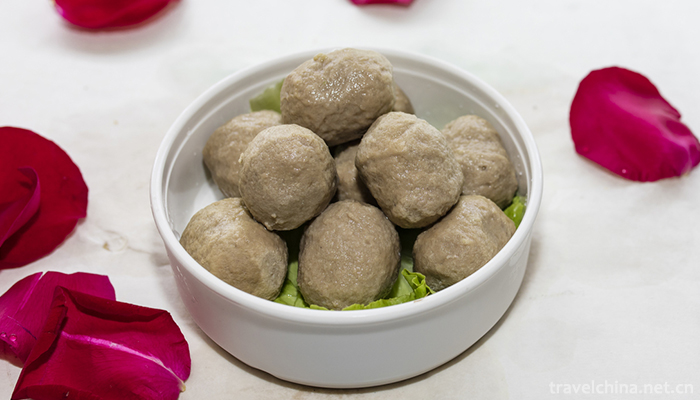
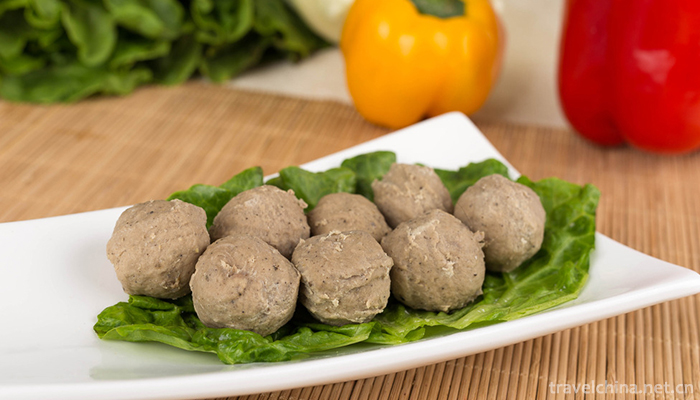
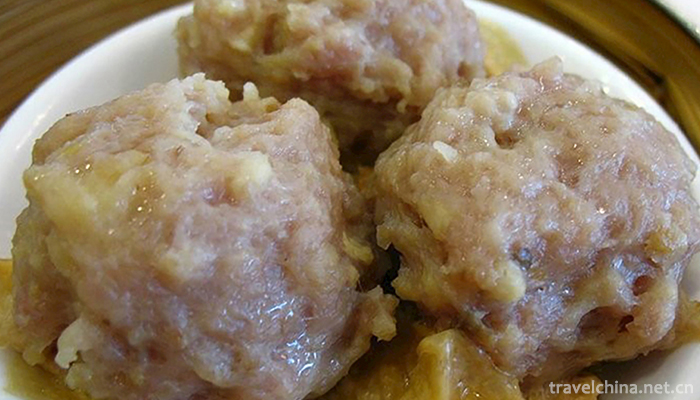
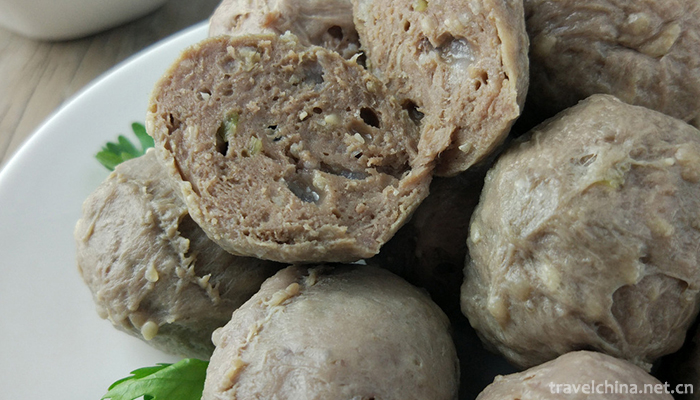
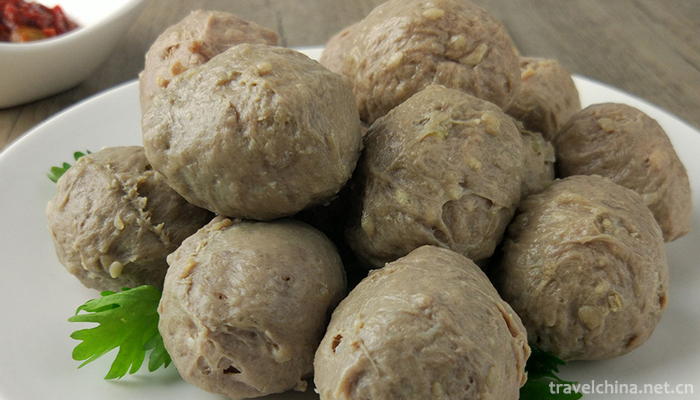
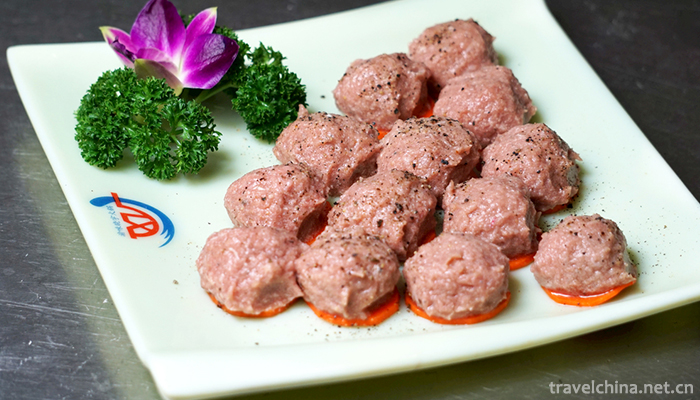
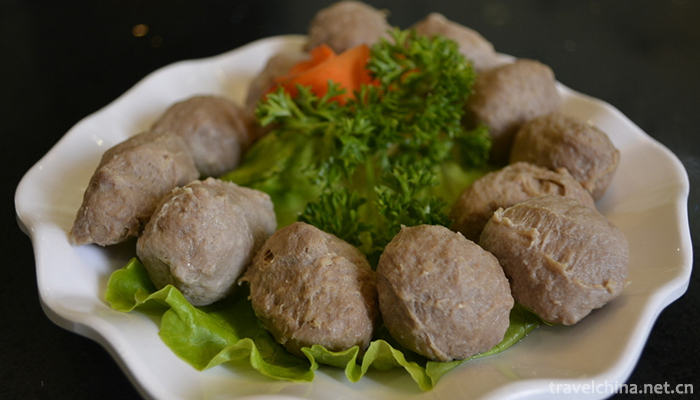
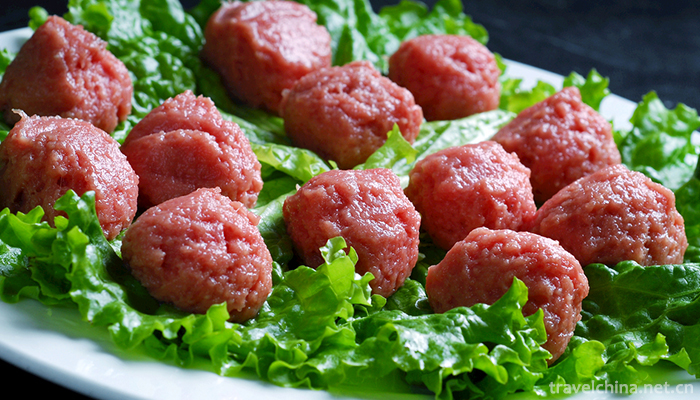
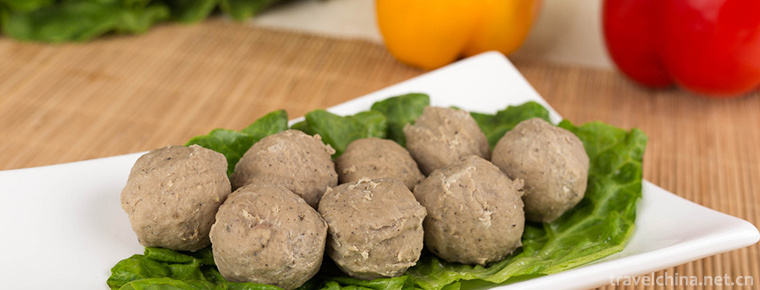
-
1.Canton Tower
Located in Guangzhou Haizhu District (Yizhou Island) near the Chigang Tower,
Time 2018-10-12 -
2.Wuhan Haichang Polar Ocean World
Wuhan Haichang Polar Ocean Park is the first Ocean Park constructed by Haichang Group in central China. It is the fifth large-scale theme park covering the concept of polar and ocean
Time 2019-02-24 -
3.Teochew woodcarving
Chaozhou woodcarving is a Chinese folk sculpture art, mainly used for architectural decoration, artifact decoration, furniture decoration, desk decoration, etc. After careful carving
Time 2019-04-16 -
4.Hebei Bangzi
Hebei Bangzi is an important branch of Bangzi vocal cavity in China. It was formed in the Qing Dynasty (1821 - 1850), and entered a prosperous period in the early years of Qing Guangxu
Time 2019-05-02 -
5.Traditional Brewing Techniques of Brewing Wine
Chrysanthemum wine is a necessary drink for Chongyang Festival. It has a long history of brewing. Royal chrysanthemum liquor of Ming and Qing Dynasties was a kind of precious liquor created on the bas
Time 2019-06-09 -
6.Firing Techniques of Wuzhou Kiln Ceramics
The traditional firing technique of Wuzhou kiln is a local traditional handicraft technique in Zhejiang Province. Wuzhou kiln is located in Tiedian Village, Langya Township, Jinhua City. Jinhua was na
Time 2019-06-30 -
7.Yongchun Paper Weaving Painting
"Yongchun County Chronicle" records: "In the early Tang Dynasty, Yongchun had the production of paper-woven paintings. Yongchun paper weaving painting features: interwoven paper marks,
Time 2019-07-14 -
8.Chen Jingrun
Chen Jingrun (May 22, 1933 -1996 March 19th), male, Han, non party personages. Fujian Fuzhou Man, a contemporary mathematician.
Time 2019-09-07 -
9.Yamugou scenic spot
Yamugou scenic spot is located on the Bank of Taiping River (a famous scenic spot in Guizhou Province) in Jiangkou County, Tongren City, Guizhou Province, adjacent to Fanjing Mountain (National Nature Reserve, China's top ten famous summer resort).
Time 2020-10-13 -
10.Zhaohua ancient city
Zhaohua ancient city is located in Zhaohua Town, Zhaohua District, Guangyuan City, Sichuan Province. After that, Zhaochang county was renamed as Yichang county. Located at the confluence of Bailong River, Jialing River and Qingjiang River, the Jialing River flows here with Wancheng water system and natural Taiji. It has the reputation of "the world's first landscape Taiji" natural wonder.
Time 2020-11-08 -
11.About Ding Zhen Video
In November 11th CCTV news and Oriental tiktok were put on a short video of the tremble. Ding Zhen, the "sweet boy" in the video, triggered a phenomenal network event with a transmission volume of more than 5 billion times. At the same time,
Time 2020-12-06 -
12.The situation of Chinese embroidery in various historical dynasties
The origin of Chinese embroidery is very early. It is said that "Shun ordered Yu to embroider multicolored embroidery". It was developed in the Xia, Shang, Zhou Dynasties and Qin and Han Dynasties. From the early unearthed textiles, embroidery
Time 2020-12-12